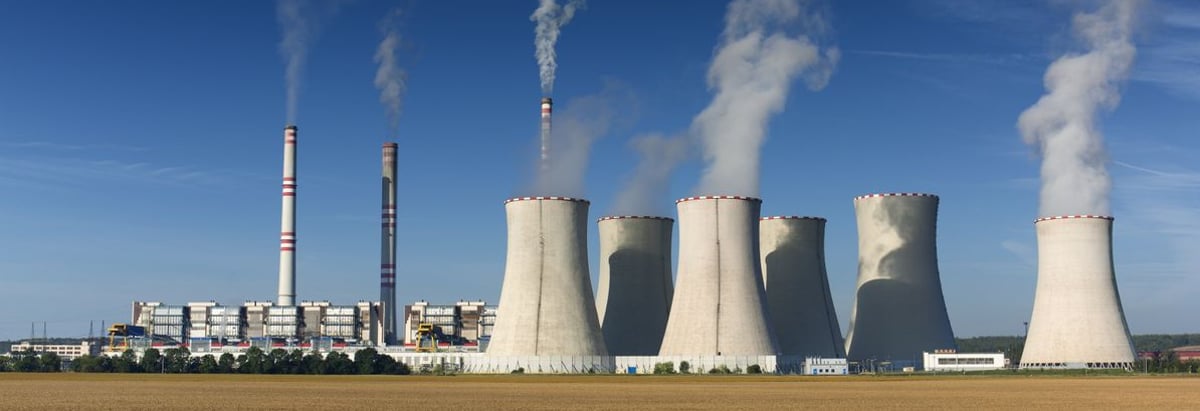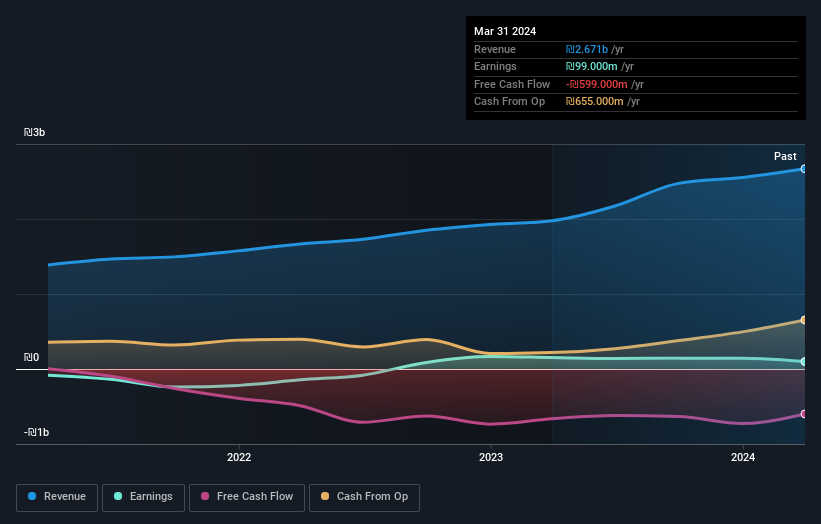- Israel
- /
- Renewable Energy
- /
- TASE:OPCE
OPC Energy Ltd.'s (TLV:OPCE) top owners are private companies with 55% stake, while 29% is held by institutions

Key Insights
- Significant control over OPC Energy by private companies implies that the general public has more power to influence management and governance-related decisions
- Court Investments Limited owns 55% of the company
- Institutional ownership in OPC Energy is 29%
If you want to know who really controls OPC Energy Ltd. (TLV:OPCE), then you'll have to look at the makeup of its share registry. And the group that holds the biggest piece of the pie are private companies with 55% ownership. Put another way, the group faces the maximum upside potential (or downside risk).
Meanwhile, institutions make up 29% of the company’s shareholders. Insiders often own a large chunk of younger, smaller, companies while huge companies tend to have institutions as shareholders.
Let's delve deeper into each type of owner of OPC Energy, beginning with the chart below.
View our latest analysis for OPC Energy

What Does The Institutional Ownership Tell Us About OPC Energy?
Many institutions measure their performance against an index that approximates the local market. So they usually pay more attention to companies that are included in major indices.
OPC Energy already has institutions on the share registry. Indeed, they own a respectable stake in the company. This can indicate that the company has a certain degree of credibility in the investment community. However, it is best to be wary of relying on the supposed validation that comes with institutional investors. They too, get it wrong sometimes. If multiple institutions change their view on a stock at the same time, you could see the share price drop fast. It's therefore worth looking at OPC Energy's earnings history below. Of course, the future is what really matters.

We note that hedge funds don't have a meaningful investment in OPC Energy. Court Investments Limited is currently the company's largest shareholder with 55% of shares outstanding. This essentially means that they have extensive influence, if not outright control, over the future of the corporation. With 7.2% and 5.4% of the shares outstanding respectively, Phoenix Excellence Pension and Provident Ltd. and Migdal Mutual Funds Ltd. are the second and third largest shareholders.
While studying institutional ownership for a company can add value to your research, it is also a good practice to research analyst recommendations to get a deeper understand of a stock's expected performance. As far as we can tell there isn't analyst coverage of the company, so it is probably flying under the radar.
Insider Ownership Of OPC Energy
The definition of an insider can differ slightly between different countries, but members of the board of directors always count. Management ultimately answers to the board. However, it is not uncommon for managers to be executive board members, especially if they are a founder or the CEO.
I generally consider insider ownership to be a good thing. However, on some occasions it makes it more difficult for other shareholders to hold the board accountable for decisions.
Our data suggests that insiders own under 1% of OPC Energy Ltd. in their own names. We do note, however, it is possible insiders have an indirect interest through a private company or other corporate structure. It's a big company, so even a small proportional interest can create alignment between the board and shareholders. In this case insiders own ₪956k worth of shares. Arguably, recent buying and selling is just as important to consider. You can click here to see if insiders have been buying or selling.
General Public Ownership
The general public, who are usually individual investors, hold a 16% stake in OPC Energy. While this group can't necessarily call the shots, it can certainly have a real influence on how the company is run.
Private Company Ownership
We can see that Private Companies own 55%, of the shares on issue. Private companies may be related parties. Sometimes insiders have an interest in a public company through a holding in a private company, rather than in their own capacity as an individual. While it's hard to draw any broad stroke conclusions, it is worth noting as an area for further research.
Next Steps:
I find it very interesting to look at who exactly owns a company. But to truly gain insight, we need to consider other information, too. Be aware that OPC Energy is showing 3 warning signs in our investment analysis , and 1 of those doesn't sit too well with us...
Of course, you might find a fantastic investment by looking elsewhere. So take a peek at this free list of interesting companies.
NB: Figures in this article are calculated using data from the last twelve months, which refer to the 12-month period ending on the last date of the month the financial statement is dated. This may not be consistent with full year annual report figures.
New: AI Stock Screener & Alerts
Our new AI Stock Screener scans the market every day to uncover opportunities.
• Dividend Powerhouses (3%+ Yield)
• Undervalued Small Caps with Insider Buying
• High growth Tech and AI Companies
Or build your own from over 50 metrics.
Have feedback on this article? Concerned about the content? Get in touch with us directly. Alternatively, email editorial-team (at) simplywallst.com.
This article by Simply Wall St is general in nature. We provide commentary based on historical data and analyst forecasts only using an unbiased methodology and our articles are not intended to be financial advice. It does not constitute a recommendation to buy or sell any stock, and does not take account of your objectives, or your financial situation. We aim to bring you long-term focused analysis driven by fundamental data. Note that our analysis may not factor in the latest price-sensitive company announcements or qualitative material. Simply Wall St has no position in any stocks mentioned.
About TASE:OPCE
OPC Energy
Engages in the planning, development, construction, and operation of power stations in Israel.
Low with questionable track record.


